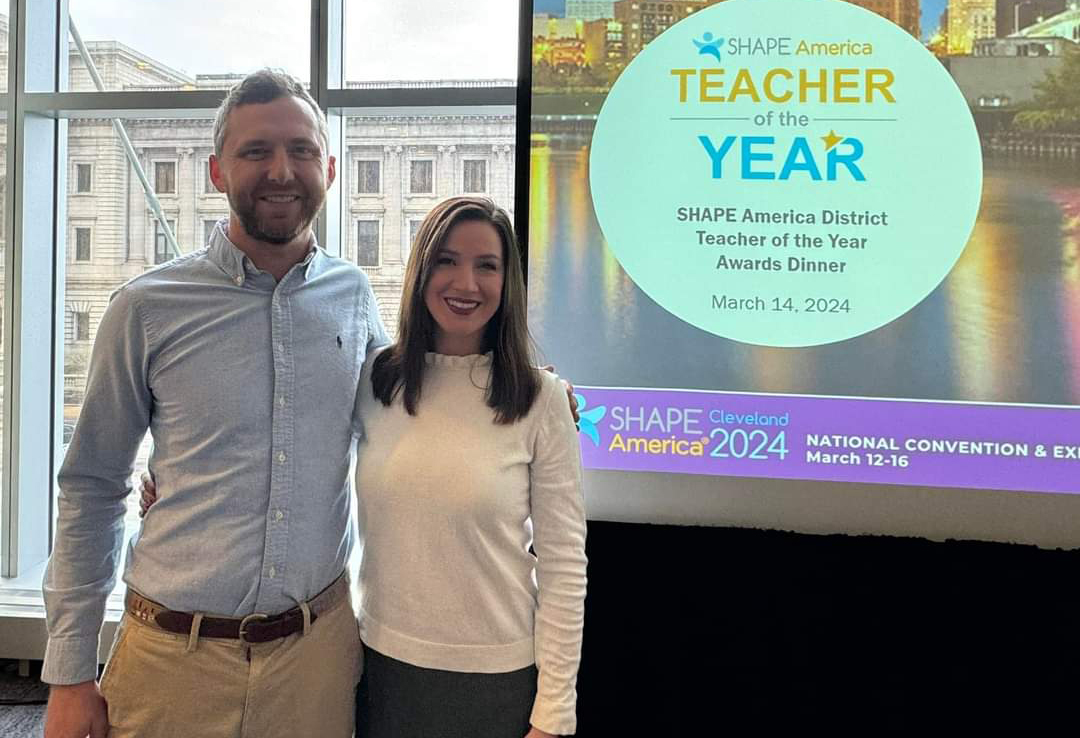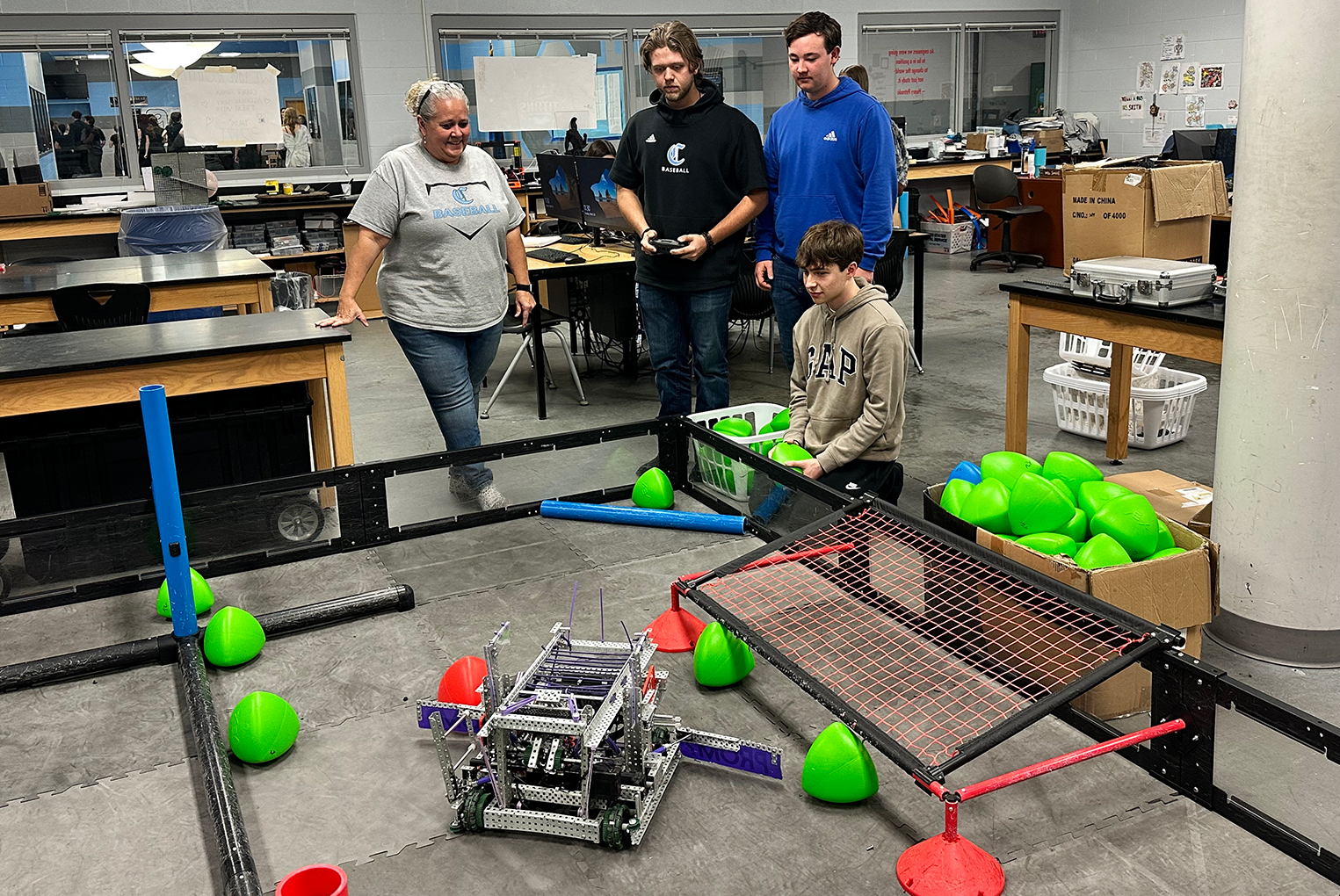
Stephen Pruitt, center, who was named the sixth Kentucky Commissioner of Education by the Kentucky Board of Education Oct. 6, listens to a speaker during the board meeting. Pruitt will start work Oct. 16.
Photo by Mike Marsee, Oct. 6, 2015
By Jennifer Ginn
jennifer.ginn@education.ky.gov
When Kentucky’s sixth commissioner of education first went to college, he didn’t have any plans to be an educator.
“I thought I was going to be an ophthalmologist,” said Stephen L. Pruitt, who assumes his duties as commissioner Friday, Oct. 16. “I loved eyes, I loved anatomy. Of course, it ended up that I didn’t even do that because I became an organic chemist.”
That love of science has carried over to Pruitt’s professional life. Most recently, he spearheaded the development of the Next Generation Science Standards during his tenure as senior vice president at Achieve Inc., an independent, nonpartisan, nonprofit education reform organization based in Washington, D.C. He also served as chief of staff, associate state superintendent, director of academic standards, and science and mathematics program manager with the Georgia Department of Education; and was a high school chemistry teacher in Fayetteville and Tyrone, Ga.
Kentucky Teacher staff had a chance recently to speak with Pruitt and ask him about his priorities once he takes over the reins at the Kentucky Department of Education. Here’s what he had to say.
What inspired you to become an educator?
“I’m a third-generation educator. My grandmother taught, my mother taught and actually, my uncle taught. I just always enjoyed being with people, enjoyed being in a position where I could inform. I did everything from teaching Sunday school to tutoring.
“I had this incredible chemistry teacher in my freshman year of college. It just kind of hit me one day, I’m supposed to be a teacher. I don’t know that there was a single event, it just was always something I did. It took me having a couple of fantastic teachers to realize the impact I could have on people.”
What is your general impression of Kentucky’s education system?
“This is the first time I’ve ever applied to be a commissioner. That has everything to do with Kentucky. Obviously, we know that there are still gaps, but the commitment to improving education for Kentucky’s kids has been there since the ’90s. The leadership has always been very focused on improving education.
“I feel like I’m walking into a really good situation. I feel I can help take it to the next level, but it’s because the people in Kentucky are so committed to wanting the best for the kids.”
What’s your leadership style?
“Collaborative. I don’t have a problem making a decision when it’s time, but I don’t make them uninformed and I don’t make them without hearing from the people they affect. There may be times we disagree, but I’m going to hear the issues. I like to think of my leadership style as being very collaborative, thoughtful and deliberate.”
Kentucky has a long history of bringing the private sector and other groups into education. How do you envision keeping those relationships alive and productive?

Stephen L. Pruitt is congratulated by Kentucky state Rep. Jim DeCesare of Bowling Green at the Kentucky Board of Education’s Oct. 6, meeting, where Pruitt’s contract as the state’s next commissioner of education was signed.
Photo by Mike Marsee, Oct. 6, 2015
“First of all, I think with being new to Kentucky, I’ve got to build them. A lot of my time early on is going to be building those relationships. To me, you really can’t get anything done without building good relationships with the shareholders in the K-12 space — with teachers, administrators, superintendents and local boards of education. From what I’ve experienced, doing that in absentia of the private sector — the business community, the chamber — how can we possibly think that we’re going to prepare kids to be successful, contributing citizens to Kentucky without talking to the people who are going to be hiring them? They’ve got to be a critical part of the process.
“There are some great infrastructures already in Kentucky with the Prichard Committee and others that just bring so much knowledge to the table.”
What will be your top priorities as Kentucky’s new commissioner of education?
“First and foremost are building relationships, both inside the agency and out. I’ve got to get to know the people of Kentucky, they’ve got to get to know me. I know a lot of about Kentucky from my working with KDE staff and many, many science teachers over the years, but to me, the most important part is going to be building that relationship and listening. I need to hear from the various shareholders around the state.
“I’m looking forward to getting to know the agency, but I’m going to be on the road a lot the first three months. I’m looking forward getting out to the districts and hearing what’s going on, getting to know the superintendents and the local school board members. I’m very excited about that because that’s going to be critical for collaboration too.”
What do you see as the Kentucky Department of Education’s role in the state?
“The role I see for KDE is to provide leadership for the state, but leadership takes a lot of different forms. There’s the obvious form of leadership that people say, ‘You’re going to jump on the horse and charge the hill.’ For me, a lot of it is also holding the banner for equality and for rigor and for building the collaboration around it.
“For me, KDE is a provider of leadership in Kentucky, but part of that leadership comes through service. I want to see us be a service agency. I want to see us be a support to the districts and to the local boards and to all of the other shareholders in the state. Obviously there are going to be things we have to do around compliance, but again, I think it’s about collaboration. Even if we end up not agreeing, we all must have a healthy respect and understanding for why the decisions were made.”
One of the Kentucky Department of Education’s priorities is to address the achievement gap. How do you think we can do that?
“I think that the first thing is I’ve got to get in and really get an evaluation of the environment. With my time in Georgia, I found a lot of times the achievement gap resulted from an opportunity gap. I went into education, and in particular left the classroom, because it is a big, big deal that all kids have an opportunity. Whether they weren’t getting the same level of coursework, or in some cases, they weren’t even getting same courses. I used to joke in Georgia that we had three levels of algebra — we had algebra, algebra light and algebra low carb.
“I genuinely believe that people think sometimes that they’re trying to be helpful and they put kids in courses that go slower or with less content, especially in the areas of math and science. We’ve sort of have gotten this view of the world that we can actually get better doing less, which is kind of what we do in math and science. The kid’s not good in math, and this is especially true in science, so we’re going to have them do it less and do it slower. They already don’t enjoy it, so now we’re going to give it to them slower and not really engage them in things that are important to them.”
What keeps you involved in education? What drives you forward?
“Really it’s still kids. It’s making the world a better place through kids. It’s the idea that we can give kids the opportunity to be contributors to society through education. It’s also just the joy of working with people who have a real passion for wanting to improve that as well. There’s nothing I love better than going and sitting in room full of teachers.
“I still remember the spark in a child’s eye when they get something for the first time. I know the look on the teacher’s face when that happens. I know the look on the principals’ face when they see their building actually improving. It’s just so exciting to realize you made a difference in the world by making a difference with kids. I sort of start my day every day with thinking, ‘Today is a great day to make a difference.’”
Your predecessor advised the new commissioner to get out of Frankfort and go listen to teachers, educators, students and parents. How important is this to you and what plans do you have to interact with education constituents?
“It’s not just important, it’s critical. That would be the case if I had spent my entire 47 years in Kentucky or not. You cannot make decisions impacting the lives of every person in education by sitting in Frankfort all the time. You’ve got to get out, you’ve got to get to know people. They’ve got to know they can trust you and that you will listen to them.
“My biggest challenge, I think at first, is I’ve got to strike the balance between really getting to know the agency and really wanting to know the field. As I’m seeing it now, I can’t tell you when my first full week in the office will be. I’m going to be out in a district my first week on the job.”
What have you been reading lately?
‘’’The Boys in the Boat.’ It’s a nonfiction book about the University of Washington crew team from back in 1936, when they went to the Olympics and won the gold. It’s a great book. I was a track and field guy and basketball guy. Rowing is completely new to me. I only know rowing through my children. Both of my children were on the crew team in high school. My daughter will continue to row when she comes to Kentucky.
“I’ve learned a lot about rowing, but this book is about so much more. It’s about team work as well as dedication, commitment and believing in yourself. It’s pretty cool.”



Leave A Comment